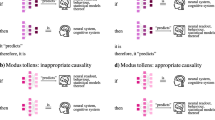Abstract
A Boltzmann Brain, haphazardly formed through the unlikely but still possible random assembly of physical particles, is a conscious brain having experiences just like an ordinary person. The skeptical possibility of being a Boltzmann Brain is an especially gripping one: scientific evidence suggests our actual universe’s full history may ultimately contain countless short-lived Boltzmann Brains with experiences just like yours or mine. I propose a solution to the skeptical challenge posed by these countless actual Boltzmann Brains. My key idea is roughly this: the skeptical argument that you’re one of the Boltzmann Brains requires you to make a statistical inference (most Fs are Gs, this is an F, so it’s probably a G), but the Principle of Total Evidence blocks us from making the inference (because I also know this F is an FH, and most FHs are not Gs). I discuss how my solution contrasts with a recent suggestion, made by Sean Carroll and David Chalmers, for how to address the skeptical challenge posed by Boltzmann Brains. And I discuss how my solution handles certain relevant concerns about what to do when we have higher-order evidence indicating that our first-order evidence is misleading.
Similar content being viewed by others
Notes
See Kotzen (forthcoming) for a useful general discussion and further references.
References
Albert, D. (2000). Time and chance. Brighton: Harvard.
Carroll, S. (2016). The big picture. New York City: Dutton.
Chalmers, D. (2018). Structuralism as a response to skepticism. The Journal of Philosophy, 115, 625–660.
Christensen, D. (forthcoming). Formulating independence. In M. S. Rasmussen & A. Steglich-Petersen (Eds.), Higher-order evidence: New essays. Oxford: Oxford University Press.
Kelly, T. (2010). Higher-order evidence and peer disagreement. In R. Feldman & T. A. Warfield (Eds.), Disagreement. Oxford: Oxford University Press.
Kelly, T. (2013). Disagreement and the burdens of judgment. In J. Lackey & D. Christensen (Eds.), The epistemology of disagreement. Oxford: Oxford University Press.
Kotzen, M. (forthcoming). What follows from the possibility of Boltzmann brains? In S. Dasgupta & B. Weslake (Eds.), Current controversies in philosophy of science. Routledge: Abingdon.
Lasonen-Aarnio, M. (2014). Higher-order evidence and the limits of defeat. Philosophy and Phenomenological Research, 88, 314–345.
Pryor, J. (2000). The skeptic and the dogmatist. Nous, 34, 517–549.
Williamson, T. (2000). Knowledge and its limits. Oxford: Oxford University Press.
Acknowledgements
I’d like to thank Matt Kotzen for extremely valuable feedback.
Author information
Authors and Affiliations
Corresponding author
Additional information
Publisher's Note
Springer Nature remains neutral with regard to jurisdictional claims in published maps and institutional affiliations.
Rights and permissions
About this article
Cite this article
Dogramaci, S. Does my total evidence support that I’m a Boltzmann Brain?. Philos Stud 177, 3717–3723 (2020). https://doi.org/10.1007/s11098-019-01404-y
Published:
Issue Date:
DOI: https://doi.org/10.1007/s11098-019-01404-y




